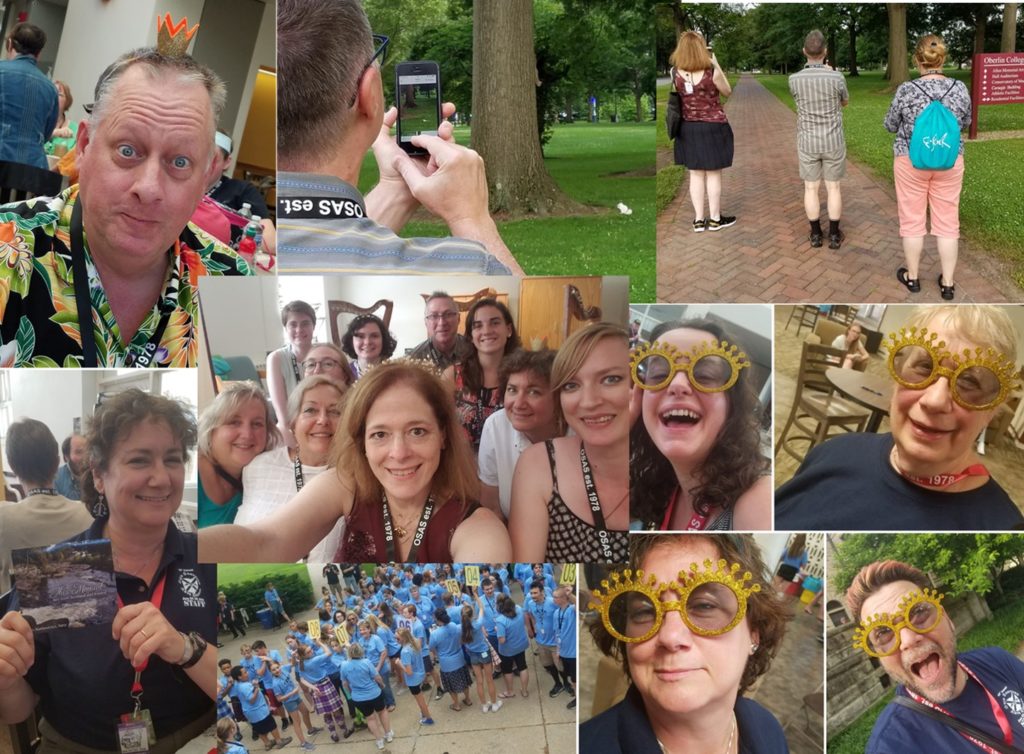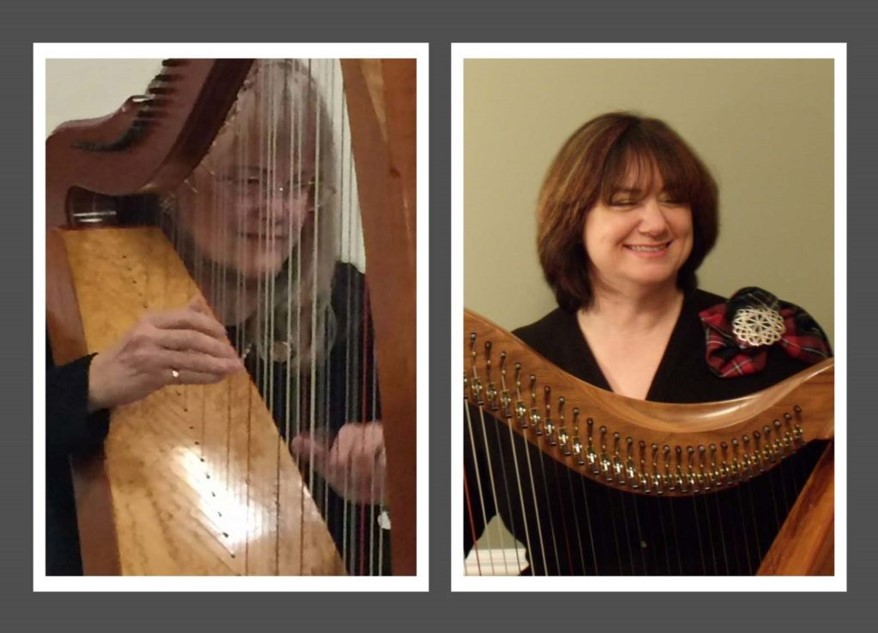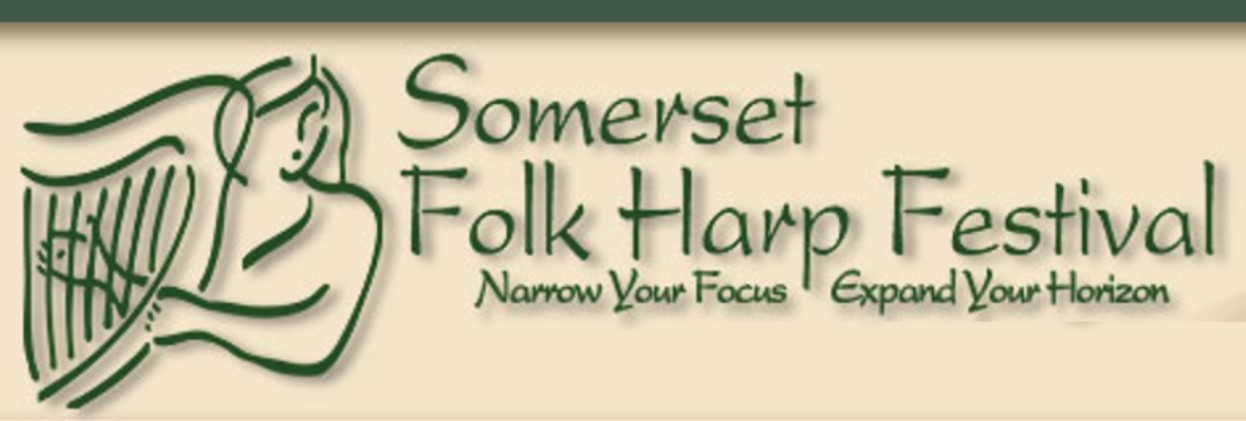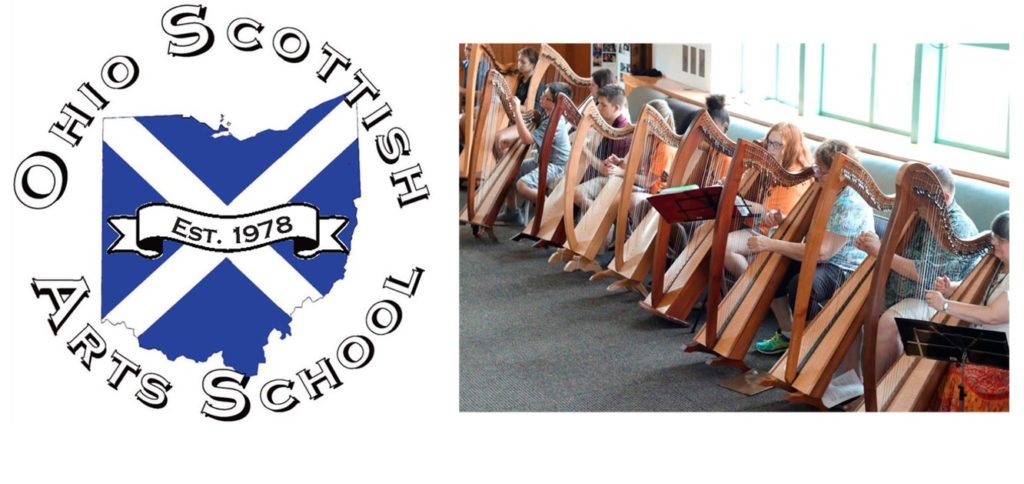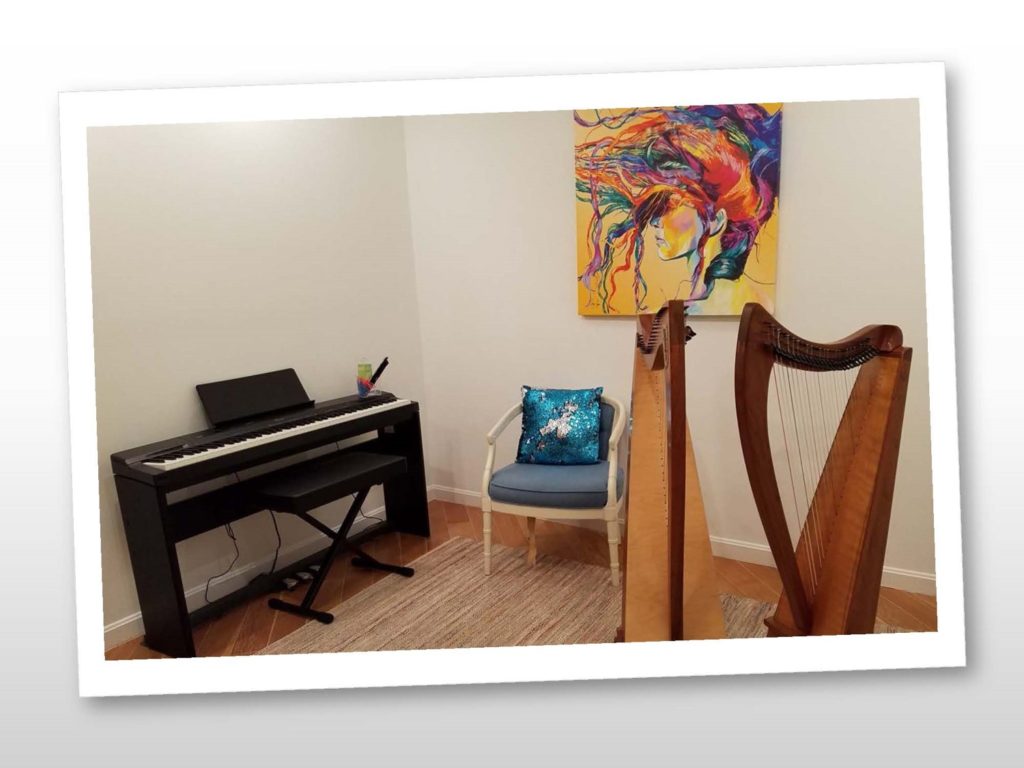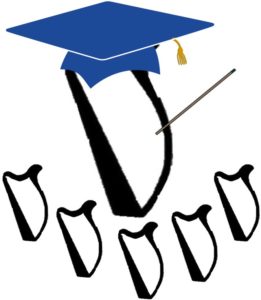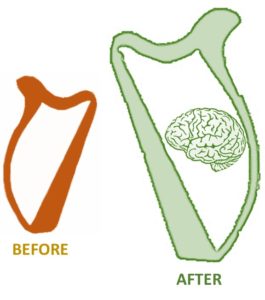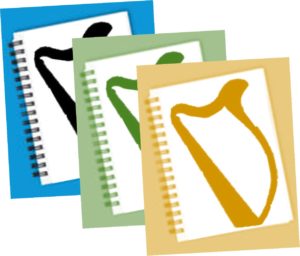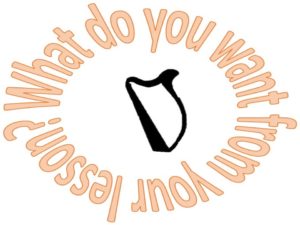Teaching is a very fulfilling way to spend one’s time. There are few things as motivating as seeing a student “get” something the first time, to share the joy of a person playing more confidently or accurately, to experience the culmination of a student’s hard work right there in your studio.
I enjoy sharing the harp with others. I always get a thrill when I see progress and it’s enhanced when they see that they have made progress! Such a feeling!
Part of teaching is to share hard earned knowledge. By passing on the wisdom of previous harpers and other musicians, we teachers seek to help students build shortcuts through those tedious (but necessary) things. We don’t want to watch you struggle. It’s not that we won’t help you get out of the struggle – but if we can help you avoid it, then you have that much more energy to tackle the next challenging thing!
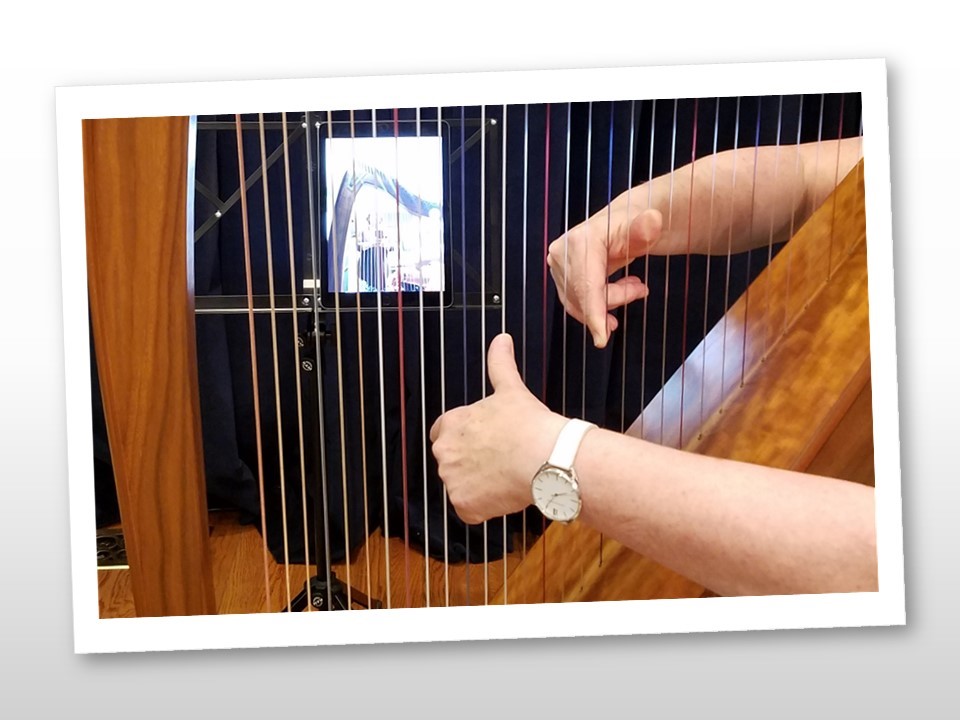 And so, weekly, we tell you to keep your thumbs up, your hands closed, your elbows up, your back straight, your head up. We entreat you to place your fingers, to slow down, to pay attention to the myriad details that are central to making each note.
And so, weekly, we tell you to keep your thumbs up, your hands closed, your elbows up, your back straight, your head up. We entreat you to place your fingers, to slow down, to pay attention to the myriad details that are central to making each note.
And why do we do this? Because we want you to succeed. We want you to master the instrument – in as straight a line, as quickly as possible. We have been there – that’s why we’re sitting beside you!
And I know that you believe yourself to be doing all the things I ask of you. That you wonder if I’m not being a little bit too harsh with you. Or perhaps that I have run out of things to say and so I repeat myself. After all, you have got this!
And so I sit beside you and try to come up with new ways to say all those things that I have noticed you might improve upon. I don’t want to beat you up about the same things week after week. I don’t want to beat you up at all! I want you to play as well as you can, as soon as you can – and then move on to learn even more. If only I could get you to place and keep your thumbs up!
Teachers share this frustration – the gap between what we tell you and what you think you have done. And we laugh because we know that we can tell you something a thousand times but if a workshop presenter comes through and says it, you will likely come back to your lesson, clutching this pearl of wisdom and share it with us – as though we hadn’t suggested it in the past. It’s actually sort of a laugh we share. I actually put together a workshop based on this idea. And really, we don’t care where you get the information – as long as you use it!
One thing I often suggest to my students and to you here is that you record yourself. Your recording doesn’t have to be fancy – you can use your phone, a voice recorder meant for meeting – you could you use a cassette tape. It doesn’t matter, as long as you can hear yourself!
So, imagine my delight and surprise when one of my students came to her lesson last week with the opening – “I recorded myself playing as you suggested” (internal gasp! She was listening!). What floored me though, was what came next, “ I’m not keeping my thumbs up – just like you keep telling me” to which I wasn’t sure what to say. “Told you so” didn’t seem like a useful way to move forward!
But what was the most endearing and important was what she did next. Throughout her practice sessions that week – she continued to work. And continued recording – so s-h-e could see that she was making improvements! What a delight to hear! What an affirmation! What lovely hand position! And what fantastic tone!!! She totally made my day!
So, please – use the information your teacher shares with you – the techniques, the tools, the tips. And incorporate all those nuggets into your work time. You’ll learn more, you’ll see improvement, you’ll know where to focus as you move forward and learn more about how you play. And you’ll make your teacher very, very happy. But remember – it’s not about the teacher. It’s about you – learning to play, enjoying playing, and doing the work that you need to so that you can play better!
How do you capture your practice, incorporate your teacher’s suggestions, and evaluate your playing? Leave me a comment about how you move forward – I’d love for you to share your ideas – and progress – with me!

